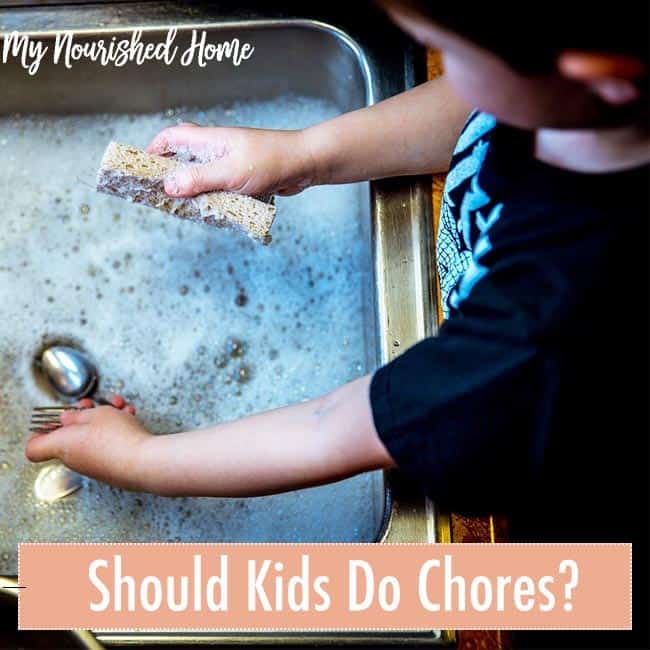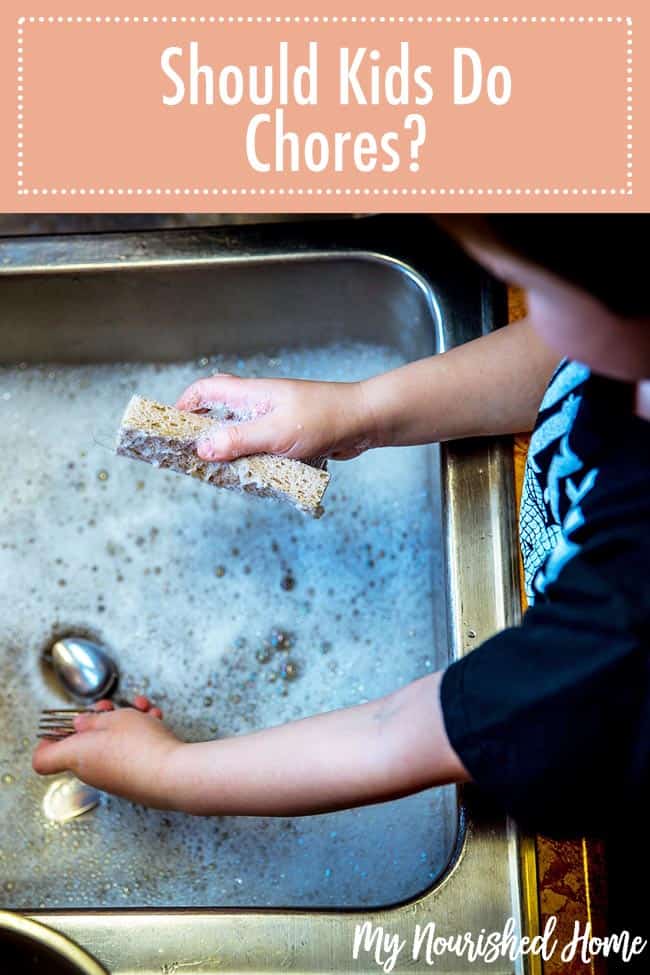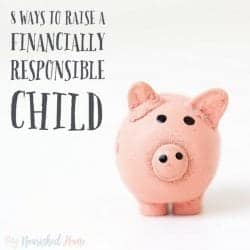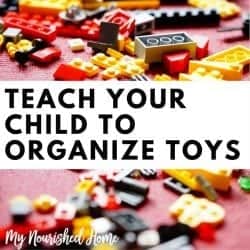
There seems to be a split verdict when parents are asked Should Kids Do Chores. But even if you, like us, believe chores are important for kids, it can be difficult to implement them consistently and teach the right lessons along the way.
We absolutely expect our kids to do chores at home. I will admit that got easier to implement as we had more kids because there was already an expectation in place that everyone helps. With our first child, I remember having a discussion with my husband about when and what chores we should ask our child to do – or even if she should be doing chores at all.
(Poor first children are always the experimental children!)
But I do believe that having a deep understanding of why we ask our kids to do chores makes is much simpler to consistently parent them, even when they don’t feel like washing dishes or picking up toys.
Should Kids Do Chores
The decision we arrived at is that WE ARE A FAMILY. And in a family, we all help each other. We all carry the load together because that is what families do. That lesson certainly means more than just having a child clear the table after dinner. But chores are an early object lesson for kids to learn that in a family, we all work together and care for each other. We don’t leave one person to do all the work alone.
It is our observation that our kids are carrying that lesson into their friendships beyond our home. We want our kids to be helpful, compassionate human beings. Asking them to complete chores is a simple way to begin the discussion at home about WHY we help. And why it is important to take responsibility for yourself.
The Practical Side of Family Chores
Chores are also a practical life lesson. I want my kids to be helpful and compassionate… But I also want them to have the skills to become independent adults who know how to care for themselves and their environment at some point. Teaching kids how to wash dishes and clean the toilet aren’t exactly what I think of when I consider parenting a higher calling. But they are important life skills that fit right alongside knowing how to feed yourself and have a basic understanding of money as you grow up.
If you agree that chores are an important part of growing up, then the next step is to create a Family Chore Chart that is… well, not a chore.
Making Family Chores Work
You have to teach your children about responsibility – both for themselves and for the people and things around them. The first step is to be clear about what your expectations are for your kids. If you are a single parent or a couple, the adults should do their best to get on the same page about chores. The more “normal” it is for the parents that everyone helps, the more normal it will be for the kids.
How you explain family chores to your children is important, and nobody knows your family better than you do. We prefer the matter-of-fact approach with our kids. Family chores are not punishment or about being scolded. They also don’t have to be fun – though I do believe you can make working side by side enjoyable.
Helping Kids Understand Chores
Our conversation sounded a little like this: “You are so big now and we are really proud of you. We’re a family and families help each other and you are big enough now to help too. From now on, you get to clear the table after dinner.”
Now is the big challenge, be consistent. That part is not always smooth sailing because kids are different. But we’ve found that the momentum of everyone helping at the same time while kids are learning to do chores is helpful. If one child is responsible for clearing dishes, my husband or I will be responsible for putting leftovers away. So we are in the kitchen working together. I use this time to chat about our day, to play fun music, to tell jokes while we work.
Age-appropriate tasks are important to consider, also the amount of time your kids have to help at home. Little kids can pick up toys, clear dishes, help with laundry, and feed pets. Older kids can do all kinds of housework but also tend to have less time because of homework and extracurricular activities. So be reasonable – but stay consistent.
Consequences and Rewards for Chores
While the adults in the house are getting on the same page regarding Should Kids Do Chores – they should also get on the same page about consequences and rewards for completing chores (or not!)
Parents seem to feel very differently about whether chores and allowance should be tied together. My dad used to tell us that “you do chores because you live here. You get money to do things because I am nice.” It used to drive me crazy as a kid but as an adult, I get the lesson. We opt not to pay our kids for chores. We focus on the lesson that families help each other out of commitment, and even when it isn’t necessarily the height of entertainment.
That being said, we do make sure our kids have money to do things. We tell our kids that everyone works, in the home, out of the home, adults, and kids. And their jobs are to do well in school. So instead of paying them for chores, we reward them for good grades. It gives them the opportunity to earn and learn the value of money while encouraging them to excel at school. For our family, this is a win.
There are times it is tempting to get into a battle of wills over chores when our kids want to push their boundaries. And we certainly fall down that rabbit hole more often that I like to admit. But natural consequences always seem to take care of the problem more quickly than me losing my temper. For our older child:
“I’m so sorry you can’t go to your friend’s house. I know you were looking forward to that all week. But the rule is you have to have your chores done first and you didn’t finish them.”
For our younger kids: “I am so sorry you’re toys were put in time out. The rule is that they are not left on the floor or the toys get put in time out. Maybe you will remember when we get the toys out of time out on Friday.”




Leave a Reply